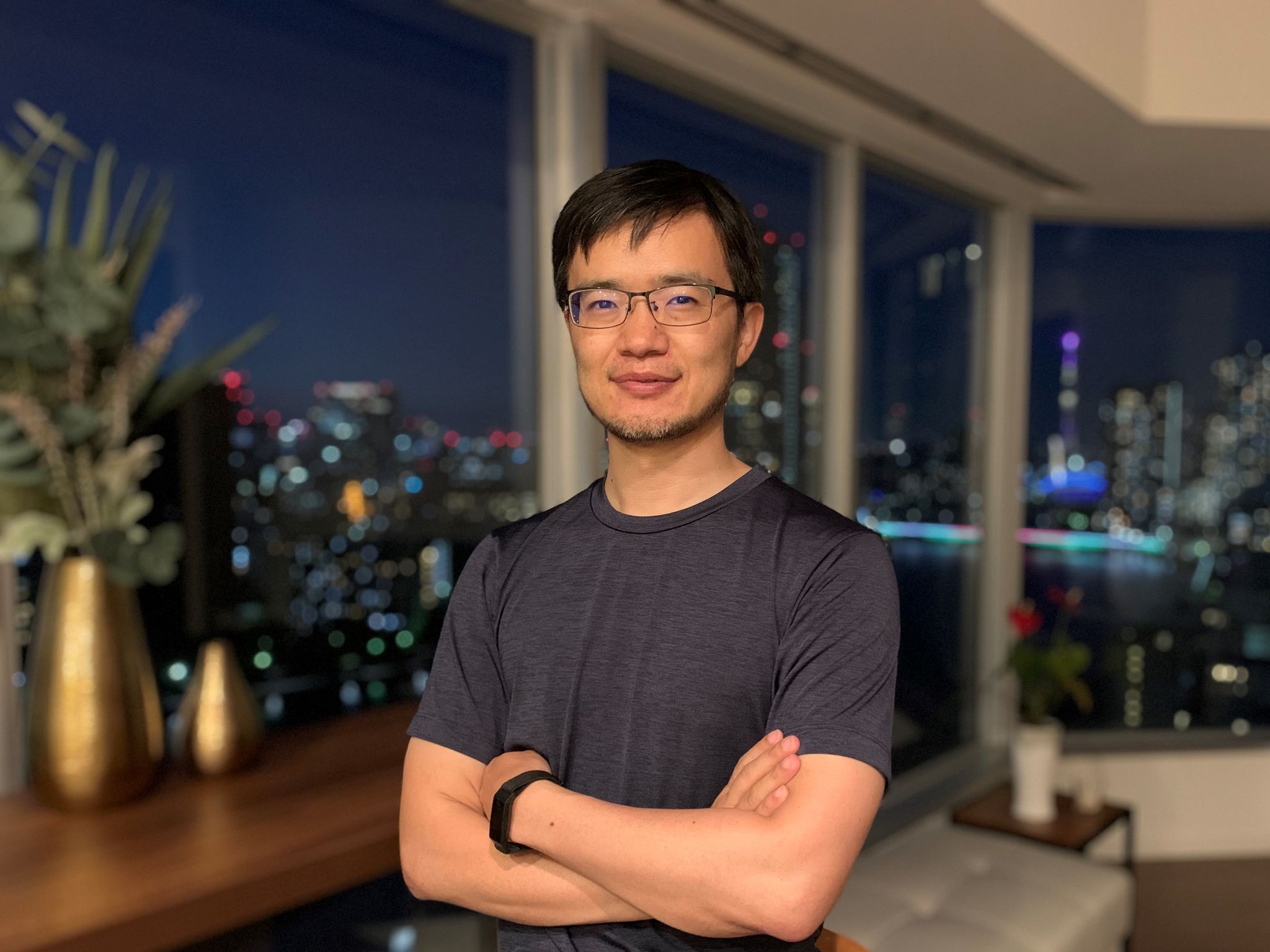Ch.Dorjnamjil: We aim to build a financial hub for foreigners in Japan

Mongolian Economy Magazine spoke with Ch. Dorjnamjil, Co-Founder and CEO of simpleJP Inc, about his past work experience, use of AI or ML in Japan and Mongolia, and how he is trying to make financial services more accessible to foreigners in Japan.
-Could you briefly introduce yourself to our readers?
-Thank you very much for having me. I am Dorj. Currently an aspiring entrepreneur, formerly a management consultant and product manager. I have recently quit my day job at ExaWizards and started working mainly on my startup in Japan.
-Let’s start with your last career. ExaWizards is a technology company that specialized AI and had one of the largest IPOs in Japan last year. Could you tell us more about what ExaWizards do and what was your role at ExaWizards?
-ExaWizards is an AI startup with a mission of solving social issues using AI technology. ExaWizards provides Digital Transformation (DX) consultation, Machine Learning or AI implementation and ML-enabled solutions to enterprise clients.
I joined the company in 2018 when there were about 30-40 people. Now it is a company of 400 people, 10 folds in 4 years. It went public last December at around USD 1 billion valuations. I had several different managerial roles as the company grew and required changes. Most recent ones were, a product manager of a SaaS product called exaBase FAQ and manager of strategic and capital alliance with companies that get DX consultation and AI, ML implementation from ExaWizards.
-What is a SaaS? Could you explain your product, exaBase FAQ?
-SaaS stands for Software as a Service and it is a way of providing software over the Internet as a service. With SaaS, people or companies do not need to install and maintain software by themselves. They can simply use it via browser on your mobile or computer. SaaS is becoming an essential and integral part of various businesses as it can potentially improve or replace most business operations digitally.
exaBase FAQ is a ML-based knowledge search tool for enterprises. It is said that businessman spends 1/4 of work hours to search new or old information. If a company can decrease that time, it will directly impact the work efficiency and the human resource cost indirectly. But information within the company is unstructured, in other words text-based, unorganized and stored in different places, thus difficult to find. Our solution lets corporate users store text information in one place and search them efficiently through ML-enabled contextual search. Its current focus is on internal FAQs such as HR, legal, IT FAQs and recently made document search possible as well.
-Could you share your experience of building a SaaS product in Japan?
-SaaS business is unique in a way that it requires both entrepreneurial spirit and a practical management approach. One needs to know a bit about everything from product management, software development, sales, and marketing to customer success to build SaaS. For instance, a company needs to measure and monitor certain SaaS-specific KPIs called SaaS metrics such as ARR, ARPU and renewal rate. Tracking and monitoring them allows companies to understand the business situation and make important management decisions.
SaaS has a huge potential in Japan since Japanese businesses still heavily rely on human operations. However, Japanese corporate culture makes it difficult to introduce new tools and change the status quo.
For example, in exaBase FAQ’s case, our sales lead time from initial discussion to signing on a contract was 6 months at the shortest. During this lead time, we need to answer various questions from the potential client and support them. It takes time, effort and a tenacious team to execute that. Our team was not a big team, but we have successfully built the product from scratch and won recurring contracts worth several hundred thousand dollars to continue the business within the first two years. I am hoping that it will grow into a well-known product in the future.
-You said you are also in charge of Strategic and Capital Alliance. Can you please tell us about how Japanese companies use AI or ML, and if it is really changing their businesses?
-During my four years, I managed several projects to develop and test ML models for client businesses. I would say that still, more than 80 percent of ML related projects are PoC or Proof of Concept projects. PoC means that companies are testing if they can replace or improve existing business operations with ML models. Most PoC projects fail to prove the intended concept, but a few of them succeed. If the company has a large enough operation, those successful projects can bring a huge ROI and justify all the failed projects. In recent years, companies learned a lot about in what cases AI can be used. With that experience, I think the success rate is getting higher every day and bringing real changes to those businesses.
-Could you give us a specific example of solving social issues using AI technology at ExaWizards?
-Sure. ExaWizards has several cares or nursing solutions, which leverage AI technology. One of the solutions is called Hanasuto. It is an AI-enabled application for care workers. Japan is one of the most aging societies in the world, with one in three people being elderly. This phenomenon is causing an increasing burden on care workers. For example, law requires care workers to write daily reports on what they did. ExaWizards’ solution, Hanasuto supports these care workers by writing reports automatically using speech recognition technology while they are providing care to elderly such as measuring their blood pressure or heart rate. AI enables that kind of solution.

-What is your take on use of AI or ML in Mongolia?
-About three years ago, I had discussions with several companies in Mongolia about ML use. At that time, it seemed a little bit early for them with insufficient data in terms of volume and quality, and a lack of leadership understanding. But the situation is rapidly changing and more companies seem to be paying attention to data analytics. From my experience, it is important to analyze your use case first and start small, fail early.
-Is there any company that uses ML in Mongolia? Could you give us some examples?
-The well-known examples are Lendmn using ML models for their credit scoring and Chimege Systems using speech-to-text for dictation apps and providing text-to-speech for websites. Also, as far as I know, several banks and a few companies in telecommunication, retail, and mining have their own internal data science teams. I guess these teams develop and test various ML models internally for different reasons.
-While working at ExaWizards, you founded your startup, simpleJP. Can you tell us about your startup?
-Starting my career at BCG and continuing with B2B startup, I have never been the target user of my own job. In my heart, I wanted to solve a problem that I face myself and make a change that I am proud of. That is why I started a startup targeting foreigners in Japan like me. I founded simpleJP with my two friends in Japan and Sendmn, the largest remittance company in Mongolia. All founders have international experience. I lived in Japan for 16 years, Maxi, who grew up in Germany and studied in UK, came to Japan 8 years ago, and Isshu is an only Japanese in our team but lived in USA and UK previously. Japan as a country of declining population is welcoming more and more foreign nationalities.
There are almost 3 million foreigners living in Japan at the moment. But financial services are still not friendly for non-Japanese residents. Our goal is to make it simple for every one of them to start life in Japan through more accessible, easy-to-use financial services.
We aim to build a financial hub for foreigners in Japan.
-When do you plan to launch your product?
-At the moment, we are in a preparation mode, developing our product, deciding on business operations and devising internal policies as a financial service provider. Still, it is difficult to say since the timeline is dependent on when we will get our license from the Japanese regulatory body. We are having discussions with them on an ongoing basis. We hope we can start the service by the end of this year.
-Before we conclude our interview, is there any advice you would like to share with students and professionals who are interested in taking up a career in startup?
-There is a famous phrase “Software is eating the world”. We are already living in that world. If you want to maximize your value and contribute to your company, your community, or Mongolia, I believe working in the technology sector is the fastest way there is. If you are interested in this sector, I think you are already on the right path.